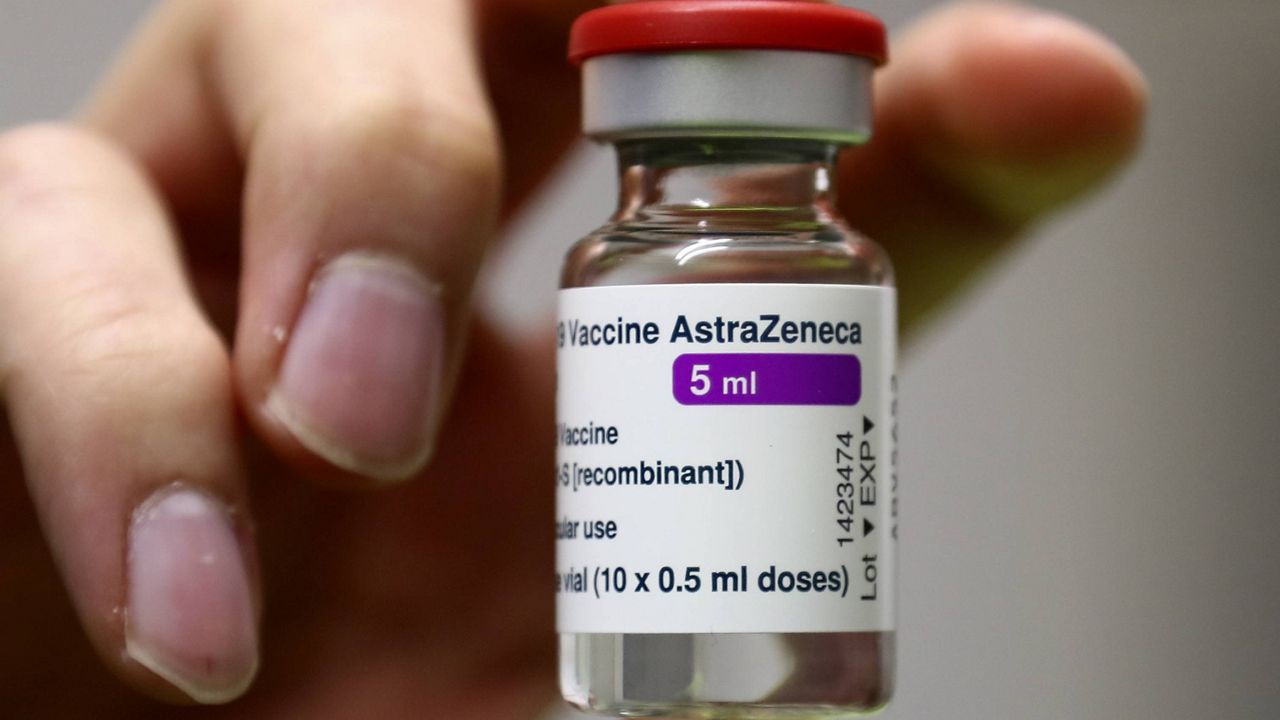The European Union's top medical regulator confirmed Wednesday that there is a "possible link" between AstraZeneca's COVID-19 vaccine and a rare blood clotting disorder, but noted that the benefits of the vaccine outweigh the risks.
In a statement, the European Medicines Agency reminded health care officials and people who receive the vaccine should "remain aware of the possibility of very rare cases of blood clots combined with low levels of blood platelets occurring within 2 weeks of vaccination."
"The reported cases of unusual blood clotting following vaccination with the AstraZeneca vaccine should be listed as possible side effects of the vaccine," EMA executive director Emer Cooke said.
"So far, most of the cases reported have occurred in women under 60 years of age within 2 weeks of vaccination," the agency said in a release. "Based on the currently available evidence, specific risk factors have not been confirmed."
The regulator noted, however, that "the reported combination of blood clots and low blood platelets is very rare, and the overall benefits of the vaccine in preventing COVID-19 outweigh the risks of side effects."
"The risk of mortality from COVID is much greater than the risk of mortality from these side effects," Cooke added.
The agency declined to add new restrictions to the use of the vaccine in people 18 and older.
The EMA’s investigation was particularly focused on two types of rare blood clots: one that appears in multiple blood vessels and another that occurs in a vein that drains blood from the brain. It also evaluated reports of people who had low levels of blood platelets, which puts them at risk of severe bleeding.
In March, more than a dozen countries, mostly in Europe, suspended their use of AstraZeneca over the blood clot issue. Most restarted — some with age restrictions — after the EMA said countries should continue using the potentially life-saving vaccine.
Meanwhile, the United Kingdom, which relies heavily on AstraZeneca, never suspended use of the vaccine. On Tuesday, AstraZeneca and Oxford University, which developed the vaccine, paused a study of the shot in children while the U.K. regulator evaluates the link between the shot and rare blood clots in adults.
The vaccine is cheaper and easier to store than many others, and is critical to Europe’s immunization campaign and a pillar of the U.N.-backed program known as COVAX that aims to get vaccines to some of the world’s poorest countries. The vaccine has been approved for use in more than 50 countries, including by the 27-nation EU and WHO.
AstraZeneca's vaccine has not yet been cleared for use in the United States.
The Associated Press contributed to this report.



